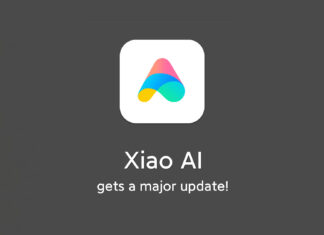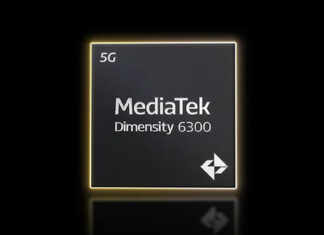Di tendenza
ULTIMI ARTICOLI
Tutto quello che devi sapere su MAGIC Portal: come funziona (e cosa fa) l’AI...
Grande assente al momento del lancio dello smartphone (e della nostra recensione), è arrivato da qualche tempo su HONOR Magic6 Pro (e a breve sull'Honor Magic V2) il nuovo aggiornamento di sistema che introduce,...
T-BAO R1 è il mini PC che si trasforma in NAS e Router: oggi...
Il mondo dei mini PC è in continua evoluzione e negli ultimi mesi abbiamo visto dispositivi sempre più performanti e adatti ad ogni tipo di attività. T-BAO R1, per esempio, è un mini PC...
AI Treasure Chest: Xiaomi sta per rilasciare tantissime funzioni AI
Finora soltanto Samsung ha abbracciato a pieno l'intelligenza artificiale su smartphone: tutte le altre compagnie stanno prendendosi il proprio tempo, Xiaomi compresa. Eppure i suoi ultimi top di gamma della serie 14 sono basati...
Nothing annuncia: l’AI di ChatGPT arriva su smartphone e cuffie
Se siete fra coloro che apprezzano le funzionalità derivate dall'intelligenza artificiale di ChatGPT, sappiate che la piattaforma di OpenAI sta trovando spazio anche sui prodotti di Nothing. L'azienda di Carl Pei sta infatti annunciando...
Tutti pronti per il bel tempo con gli occhiali da sole Xiaomi, a soli...
Gli appassionati della casa cinese lo sanno bene: Xiaomi non è solo tech, ma anche tantissimi prodotti alla moda e lifestyle. E proprio tra questi troviamo gli occhiali da sole Xiaomi Mijia Luke, lanciati...
Amici sempre più vicini con i Preferiti di WhatsApp: nuove immagini dalla beta
Aggiornamento 19/04: i Preferiti di WhatsApp tornano in beta, questa volta mostrando la nuova gestione dei contatti: il momento del lancio sembra avvicinarsi. Trovate tutti i dettagli direttamente all'interno dell'articolo.
Gli ultimi mesi hanno visto...
MediaTek presenta Dimensity 6300: 5G e gaming sempre meno costosi
Il catalogo di MediaTek dà il benvenuto a un nuovo modello di System-on-a-Chip, il Dimensity 6300 destinato alla fascia medio-bassa degli smartphone, specialmente di derivazione cinese. Da quando ha cambiato denominazione ai suoi microchip,...
Google unisce i team Android e Hardware, tutto in favore dell’AI
Il boom dell'intelligenza artificiale ha portato le grandi industrie tech ad inseguire affannosamente il trend del momento, ma adesso sembra essere arrivato il momento della riorganizzazione. Google, per esempio, è in procinto di unire...
Dopo NIO e Polestar, anche Hongqi vuole il suo smartphone
È nata una nuova moda in Cina, nazione dove sta prendendo sempre più piede nelle case automobilistiche l'idea di realizzarsi da sole il proprio smartphone. In un mondo sempre più interconnesso e tecnologico come...
Huawei Pura 70 Ultra e Kirin 9010: primi benchmark, fra sorprese, misteri e bugie
Per quanto l'azienda cerchi di tenerlo nell'ombra, dentro ai nuovi Huawei Pura 70 (ma solo su Pro, Pro+ e Ultra) c'è il Kirin 9010, l'ennesimo sforzo di una HiSilicon che, nonostante il ban USA,...






















